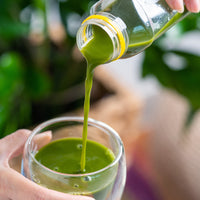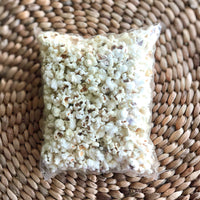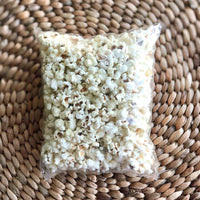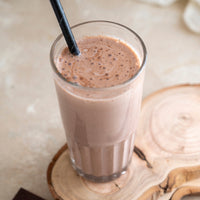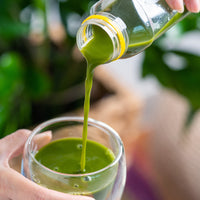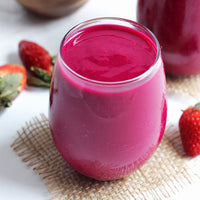
Unfortunately, going vegan does not automatically mean that it’s a healthy choice. It’s important to point out the difference between going vegan and eating plant-based.
For individuals that follow a vegan diet, it’s much more a lifestyle, not just an eating regime. They do not consume any animal products (meat, poultry, fish, dairy, eggs, honey etc.), and exclude all ingredients or materials made from animal products from their lives (like leather, wool, silk, beeswax, lanolin etc.). Most of them also do not use any products (e.g. makeup, shampoo and cleaning products) that have been tested on animals. The decision to follow this lifestyle is mainly triggered by ethical or environmental reasons, usually less by any health concerns. Therefore, vegans might consume fast or processed foods like vegan ice-cream, cookies or a pizza with vegan cheese, that cannot necessarily be considered as healthy choices as these are very often highly processed foods that can be loaded with fat, sugar and salt.
People who eat a whole food plant-based diet also avoid animal products (meat, poultry, fish, dairy, eggs, honey etc.), but unlike the vegan diet, their main reason for this decision is to improve their health. Based on this they also avoid all kinds of processed foods, including oil, white flour, refined sugar and salt, even if those foods might be “vegan” or “plant-based”, meaning they do not include any animal products. Individuals following this type of eating regime often still use animal products or materials like leather, wool and so on.
Of course, there will also be individuals that would identify themselves with both groups, meaning they follow a vegan lifestyle and base their nutrition on whole foods. I would consider myself to be one of those.
What are the benefits of going vegan from a nutritionist's perspective?
Whole-food vegan diets are generally higher in many important nutrients such as certain vitamins, minerals and fiber which can be linked to various health benefits and a lower risk for certain diseases. A balanced plant-based diet seems to offer many health benefits although further research needs to be conducted to find out the exact reason for these benefits. According to the Academy of Nutrition and Dietetics, compared to people on a mixed diet, vegans show lower rates of having heart conditions, several types of cancers (e.g. prostate, breast and colon cancers), diabetes type 2, or high blood pressure. Not eating animal products like meat, dairy and eggs provides the body with much less saturated fats, which is linked to increased cholesterol levels and increased risk for cardiovascular diseases such as heart attacks or strokes.
Does going vegan suit everybody?
Going vegan would benefit everybody health-wise, but I understand that many people are struggling with sticking to a vegan/plant-based diet 100% because a mixed diet is what they are used to, and they consider it to be easier for them. I think people that are choosing the vegan lifestyle for ethical or environmental reasons are more likely to change their lives for good and stick to it more strictly than those who are doing it because of health concerns.
The current rise in individuals starting a plant-based diet to promote better health might be pushed by the media e.g. documentaries on Netflix etc. and we still will need to observe how this develops further. Nevertheless, I would recommend everyone to eat less animal products and increase the amount of fruits, vegetables and legumes in their diet to improve their health.
Does it lead to weight loss?
A vegan diet can definitely help with weight loss if it consists of balanced plant-based meals, but depending on the types of food a person chooses, it could also lead to weight gain. I can for sure say, that from my own experience and the results I see with my clients, a plant-based or at least plant-strong eating regime improves health, energy levels and overall wellness, no matter why an individual started this diet in the first place.
Do vegan diets lack in vital nutrients?
A well-planned vegan or plant-based diet is usually even more nutrient rich than a mixed diet with high amounts of animal products. However, simply cutting out animal foods without making sure that your diet is well balanced and varied including all food groups can be risky. Important nutrients that might need to be supplemented are vitamin B12, vitamin D, iodine, iron and long-chain omega-3 fatty acids. It’s important to understand that vitamin deficiencies can be a problem among vegans and omnivores alike, for example low vitamin D levels are commonly seen in both groups. It is recommended to test the blood levels of the critical nutrients once per year to be able to adjust any needed supplements accordingly.
What’s one thing we should watch out for if we decide to go vegan?
A sufficient intake of vitamin B12. For vegans, the only way to achieve this is to consume fortified foods (e.g. fortified nutritional yeast or soya milk) or taking vitamin B12 supplements. Vitamin B12 is vital for many metabolic processes in our body, e.g. it is needed for normal brain function and the nervous system, it helps to create and regulate DNA and is also required for the creation of red blood cells.
Author: Katharina Elbracht from www.beyond-nutrition.ae.










